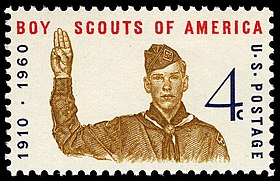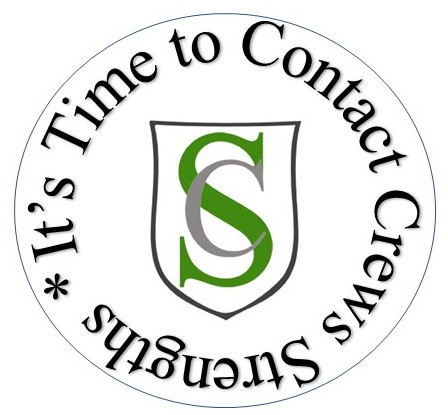
If you came to you and asked nicely, would you recommend yourself? If you were you, would you have responded positively to your request for a reference? Would you be able to provide a positive description of yourself to help you find a job? Think about that when you ask for a reference.
What would you say about yourself if you served as your own reference? That indicates what you might want a reference to say.
Do hiring managers ever check references?
Yes, they do. Hiring managers do actually get in touch with references. So let’s get clear about what references are and what purpose they serve.
What are references?
References are three to five people who can vouch for your skills and talents at work and/or your character as a human being. When put into a document, it should include their current communications details so that the hiring manager can get in touch with them. Also, indicate your connection to this person, by referring to their job title and place of employment. If the person has moved on from where you worked together, make note that “he was your supervisor at QTC Corp from 2011-2015” to help the hiring manager understand how you and your reference are connected.
In times gone by, most resumes included a line near the bottom stating, “References Provided Upon Request”. If your resume still includes this line, remove it post-haste. The reality is that every hiring manager assumes that you have references prepared and that you will fall over yourself to provide them if he indicates his interest in receiving them. So, like a good Scout, be prepared!

Who makes a good reference?
The best person to pick as a reference is someone who can speak glowingly about you. This means that a good reference knows who you are and has reliable knowledge about one or more of these:
- your work
- your character
- your education or training
- your aptitude
- your potential
If you are early in your career, references could be teachers, advisors, or counselors. Sports coaches can vouch for your coolness under pressure, teamwork and stick-to-it-edness (it was a phrase I got from my dad). Remember, your athletic prowess is probably less important than your participation, attitude, and teamwork. Supervisors or bosses from summer jobs are good choices. Even more effective are people in organizations where you were an intern.
If you were in the military, a superior can be a great reference. If the work you are trying to get a job at is like your work in the service, then ask them to address that. If not, they can make excellent character and work ethic references.
The longer that you have been in the working world, the more people have seen you do what it is that you do. Supervisors and managers are the obvious reference choices. They have had to make judgements about your work in the past and may be able to cite past performance reports. Colleagues and coworkers can also be good choices. Choose people who actually know what you were doing and can speak about projects you worked on together or help that you provided to them.
Customers as References
Customers can be excellent references. If you went above and beyond for a customer, that person is likely to feel some loyalty to you. If you delivered a crane to a worksite in a tornado or scrounged up food to feed her crew when they were on location and your competitor let them down, then they might be the best possible source for a reference.
Outside of work
References that can speak to your success outside of the workplace can also be of value. Avoid ministers, since people feel that pastors tend to only discuss the good. Exceptions to this would be if your priest can speak about your fund raising prowess for the Sunday school building or your diligent 10 years of service as the temple’s treasurer. Colleagues in civic organizations may also be able to address your accomplishments. Unless you single-handedly coerced city hall to repave your street, put in new curbs and gutters, etc. your neighbors are unlikely to be the best choice.
Someone who knows the hiring manager, or your potential boss is the best possible choice as a reference. Next best is someone in the organization to which you are applying, who the hiring manager does not know, but can easily reach. A person, like one of the HR manager’s coworkers, is considered more likely to speak honestly and therefore that opinion is felt to be more genuine. Remember, managers and especially HR people feel that they will be judged by the quality of the people they bring into the company.
No matter who you choose as a reference, make sure these people are aware of your recent work history. That will help them be better prepared to discuss you when a hiring manager reaches out to them? In earlier posts, I have written a lot about resumes, so you ought to know that each resume is edited for each job. (My post on resumes begins here and cover almost every topic on resumes.) If you give or are asked by a hiring manager to provide your references, then share that specific resume for that job with your references. At a bare minimum, be sure to share your “generic” resume with your references.
How well do you need to know someone to be able to use them as a reference?
How connected to someone do you need to be to use them as a reference? Close enough, seems to be the best answer. Most of the earlier examples indicate a relationship; Boss/subordinate, colleague/colleague, sales rep/customer. There may be times when a “friend of a friend” might be the best choice. In cases where you do not know anyone in the organization to which you are applying, finding someone who does can be a huge help.
It is obviously up to the person asked whether they will agree to serve as a reference. Make sure that the person who agrees to serve as a reference knows enough to be able to answer questions about you. If possible, meet the person. Offer to buy them coffee to get 30 minutes of their time. Tell them about the position for which you are applying. In addition to using them as a reference, see if they know about other opportunities. Share the resume you are sending to her company, so that she knows what you want her employer to know about you.

How to ask for a recommendation?
When you ask someone to assist you with anything, it is best to do so in the way that is most likely to provide you with what you are requesting. If possible, contact potential references in person or via the phone. The advantage of live communications is that both parties can ask questions and share information in real time. While this is not always possible, the closer to one-on-one contact you have with the person, the better the reference will be able to sing your praises.
Let your potential reference know why you are contacting them. Ask them directly to act as a reference. If you have not been in recent contact with them, bring them up to date on your career. Also, remind them of some of the successes that you had with them. “I still appreciate your proposing me for employee of the year in 2016. With all the hard work we did on the XYZ project, I was thrilled to be singled out for that recognition.” Remind them of your positive relationship. Just like you, this person has a life they are living so you may have to remind them about how wonderful you were in the past.
Try to help your reference flesh out their description of you. If you are applying for a management job, suggest that your reference frame their description of you in a management role. Remind them of your success in leading a team project. If the job you want involves presenting, remind your reference of your achievements with trainings and speeches. A reference is most valuable when he backs up or even expands on the positive things your resume and interview have said about you.
Ask the reference to give you the best communications details to provide to potential employees. That way you assure that you only share information your reference wants to be shared. It also makes it more likely that the hiring manager can actually reach them.

Keep references in the loop
If the hiring manager asks for your reference list, reach out to your references to let them know that they are likely to hear from HR. Since many people ignore unfamiliar phone numbers, this can help them be tuned to expect a call from outside of their usual contacts. If some particular topic came up in the interview, share that with your reference, since it might help them help you. When you land a position, whether that reference has been contacted or not, be sure to let them know and to thank them for their kindness. Appreciation is never wasted. There will be other job searches, yours, or theirs.
A caveat
I can’t close this post without addressing the fact that some companies have policies limiting what their employees can say about you in a reference. Let’s blame it on the lawyers. Companies are afraid of suits from referencees (Someone who receives a reference – I think I just made that word up) who might blame their former employer for a less than stellar review which led to that person not getting the job). Seems a little farfetched, but in this litigious world, there have been lawsuits against references. Here is a link to some opinions about this from several attorneys in the practice of employment law .
This company policy is frequently skirted by having your reference address the situation by making the reference more personal, not using company letterhead and expressing in explicit terms, that the opinion is theirs and not their company’s.
I suggest avoiding suing people who provide you with references. Nothing good comes from it. Pick people who can speak well of you and avoid the others. I probably didn’t need to tell you that.
If you were laid off
If you left the organization because of a reduction in force or a layoff, you might want to preemptively request a letter from bosses and even HR, indicating that you were let go due to no shortcomings on your part.
Remember that references are more than names on a list. They are a conduit that can help you connect your past successes to your future employment.
It’s time to put your references to work!
Thank you
Thank you for continuing to read these posts. I trust that you find them valuable.
If you found this post to be of value, please like it and comment on it on LinkedIn at this location.
Helping people stop hating their jobs by finding meaningful, purposeful, engaging work is my goal. If you need help working around your weaknesses, please contact Crews Strengths. If you are considering a job search, creating a resume, deciding to make a career move or figuring out how to put your Strengths to work, please reach out.
